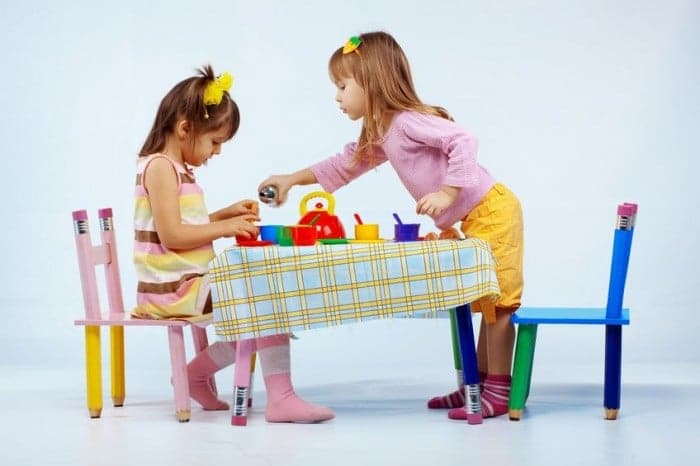In the development of a child it is important that symbolic play is present. This allows them to expand their thinking by being able to imagine situations outside of reality, thus being able to discern between what is real and what is not.
Likewise, symbolic play in children offers more benefits in their growth, which we will mention below.
From Logos Nursery School, nursery school located in Las Rozas de Madridwe tell you what symbolic play is and why it is important in the development of children from the age of 2 years old.
What is symbolic play?
These are those activities or scenarios in which children imagine everyday situations or characters, and may use the simulation of objects or toys. Basically, it consists of role-playing games where children develop their imagination.
It allows them to handle the interpretation of symbols that represent the reality of the game. It is usually presented from the age of 2 years, however, from an early age it is sought to develop this type of games for better learning.
At the beginning of the development of symbolic play, the child establishes a base game where he/she is the only character. Later, as the child grows, this game becomes more complicated until the presence of other characters is added to make it a shared activity.
What are its benefits in the development of children?
Primarily, it helps them to recognize their environment so that they are aware of where they are. In this way, symbolic play enables children:
- To develop their communication with their peers.
- Encourage creativity.
- It allows you to create mental representations of reality as well as your imagination.
- Develop emotionally.
- To help their motor development.
Likewise, it is considered a training that prepares them to solve real-life problems. This can be encouraged through the use of everyday objects in an imaginary scenario where roles can be exchanged.
How does symbolic play develop?
In principle, the child should have a symbolic game shared first with the mother and father, and then with their peers. The first one is developed from 12 months to 2 years of age so that from this age they begin to develop their social skills.
Thus, from the age of two, symbolic games begin to have greater complexity that will help them in a better creative development. With this in mind, symbolic play can be decisive in the socialization of children at an early age.
Why is symbolic play important for children?
For starters, it helps them to be exposed to everyday situations that may arise around them, so that they can better understand their surroundings. It is also a great tool that allows children to project fears, tensions and conflicts.
In this way, symbolic play helps them to express their feelings in a healthy and controlled way. Likewise, it enriches their social knowledge by allowing them to interact with peers; something very important for their personal development with other children.
On the other hand, symbolic play allows children to foster their autonomy, their curiosity and to learn to respect the rules. All this is thanks to the space where they can understand the roles of people in their environment.

